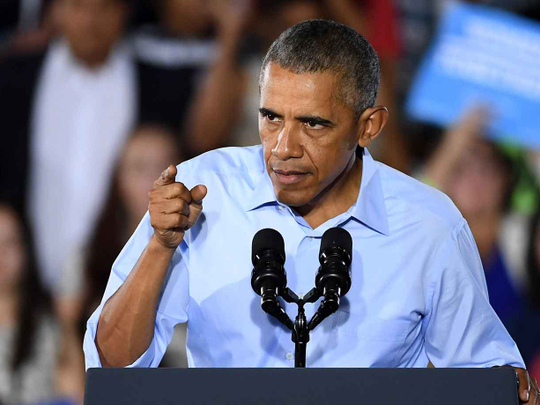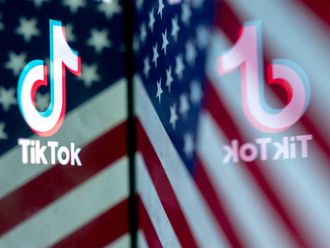
Washington: Staring intently at the dual screens inside a flight simulator this month at the University of Pittsburgh, President Barack Obama tapped the controls in front of him, firing faux thrusters as he pretended to manoeuvre his space shuttle toward the International Space Station. Pulse up. Pulse to the right. Left. Down. Down. Left. Left.
“Uber shuttle,” the beaming president told reporters after a brief but successful docking mission, joking that the next market for Uber would be outer space. “In case anyone calls, we’ll be there in five minutes.”
For nearly eight years, the presidency has been Obama’s science and technology playground, a place where he sought to become the advocate in chief for industries pushing advanced batteries, powerful medical devices and cutting-edge research.
“I’m a nerd, and I don’t make any apologies for it,” Obama said after his faux shuttle flight. He added: “It’s cool stuff. And it is that thing that sets us apart, that ability to imagine and hypothesise, and then test and figure stuff out, and tinker and make things and make them better, and then break them down and rework them.”
With less than three months left in his presidency, Obama is preparing for a life after the White House that will most likely include a close relationship with Silicon Valley. Officials running Obama’s presidential foundation have made about 10 trips to tech strongholds in California in the past year as they help him plot his next steps.
“I wouldn’t be surprised if that was one of the key focus areas for him post-presidency,” said Steve Case, a co-founder of AOL.
The path from the Obama White House to the tech giants — many of them major political donors to Obama — is already well worn.
David Plouffe, the architect of Obama’s 2008 campaign, is at Uber. Jay Carney, his one-time press secretary, is at Amazon. Dan Pfeiffer, the former communications guru, is at GoFundMe. Lisa Jackson, who once led Obama’s Environmental Protection Agency, is a senior executive at Apple. Last year, Chris Lehane, an alumnus of Bill Clinton’s White House, took a job at Airbnb, which offers short-term home rentals.
“This place is becoming an assisted living facility for political vets,” said Matt McKenna, a former spokesman for Clinton who decamped last year to Uber and now runs a boutique public relations firm in the centre of the tech world.
Suspicions that Obama harbours some dreams of joining them — at least in some capacity — were given new life during the past several weeks. The president’s flight-simulator moment in Pittsburgh capped a recent flurry of White House activity highlighting American technology.
In the course of just one week this month, Obama promoted new frontiers in space on CNN.com, writing that government and industry should collaborate to send a manned mission to Mars by 2030. He guest-edited an issue of Wired magazine, challenging Silicon Valley to tackle inequality and civic participation. And, with the University of Pittsburgh and Carnegie Mellon, he hosted the White House Frontiers Conference in Pittsburgh.
“I would be surprised if he did not spend a significant amount of his post-presidency time and effort connecting the resources and ideas and capabilities that he has learnt about in Silicon Valley with the kinds of causes that he will choose,” said Reid Hoffman, the executive chairman and co-founder of LinkedIn and a top political donor to Obama.
White House aides declined to comment on the president’s plans for Jan. 21 and beyond. But Phil Larson, who was one of Obama’s advisers at the Office of Science and Technology Policy, called him “a true geek president.”
Larson, who is now at SpaceX, the rocket company founded by the billionaire Elon Musk, said Obama “loves sitting back and having scientists say magical things about the future.”












